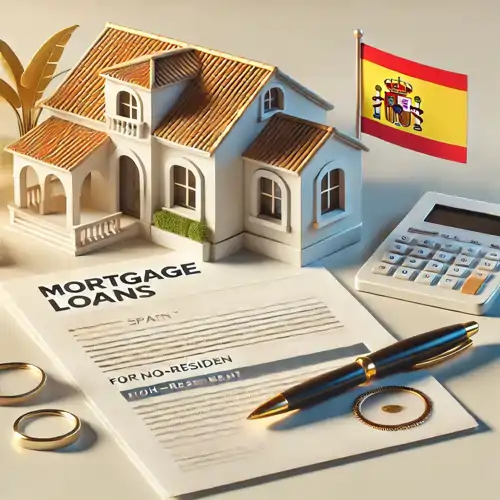Mortgage in Spain for Non-Residents: How to Get the Lowest Rate?
Spain attracts many foreigners due to its mild climate, picturesque landscapes, and high living standards. One way to acquire property is through a mortgage, and despite the attractive conditions, the process of getting a mortgage for non-residents requires considering a number of particularities. In this article, we will look at how to obtain a mortgage with the lowest rate, as well as the factors to pay attention to when applying.
Main Features of Mortgages for Non-Residents
A mortgage in Spain for non-residents has several key differences from mortgages for local residents. It is important to understand these differences to avoid unpleasant surprises.
- Higher interest rates. Banks consider mortgages for non-residents as more risky. The average mortgage rate for non-residents is around 3.10%, while for residents it may be 2.50%.
- Limited financing amount. Banks usually provide a mortgage for 60-70% of the lower value between the appraisal and purchase price. In some cases, this may be limited to 50%.
- Repayment terms. Mortgages for non-residents often have shorter repayment terms, usually up to 20 years. However, exceptions are possible, and the loan can be granted for up to 30 years.
- Additional fees. The mortgage process involves additional costs, such as opening fees (0.5-1.5% of the loan amount).
- Borrower verification. Banks carefully check the financial stability of the borrower and may deny the loan if there are doubts about their solvency.
How to Get a Mortgage with the Lowest Rate?
To get a mortgage with the lowest rate, it is important to consider several factors that can influence the loan terms:
- High down payment. The larger your share in the deal, the better conditions the bank will offer. A larger down payment reduces the risks for the bank.
- Good credit history. Banks pay attention to your credit history, especially if you earn income in a stable currency (euro or currencies from EU countries).
- Stable income. Be sure to provide documents confirming your financial stability. Ideally, your income should be at least three times the monthly mortgage payment.
- Choosing the right bank. Some banks offer lower rates if you use additional financial products, such as insurance or opening additional accounts.
Documents Required to Apply for a Mortgage
When applying for a mortgage in Spain for non-residents, you must provide a number of documents that confirm your financial stability and the legality of your income.
- Foreign passport (original and copy).
- Non-resident certificate in Spain (Certificado de no residente en España).
- Proof of employment (employment contract, pay slips).
- Bank statement for the last 12 months.
- Tax return for the last year.
- Reservation agreement for the chosen property and the appraiser's report.
Which Banks Offer the Best Conditions for Non-Residents?
Several major banks in the market offer mortgage loans for non-residents with attractive conditions.
- Banco Sabadell: Fixed rate of 3.60%. Possibility to reduce the rate by 0.75% when using additional products.
- Unicaja: Mortgage loans for 60-70% of the property value with a fixed rate of 3.05% for the first six months.
- Bankinter: Offers both fixed and variable rates for non-residents with income in euros.
- Santander: Variable rate from 1.84%, loans from 100,000 to 1,000,000 euros.
- BBVA: Competitive rates with the possibility of reduction after the first year.
Additional Costs When Applying for a Mortgage
When applying for a mortgage to purchase property in Spain, it is important to consider not only the loan interest rate but also the additional costs, which may include:
- Mortgage opening fee (1-2% of the loan amount).
- Property valuation (around 300 euros).
- Property and life insurance (from 30 euros per month).
- Early repayment penalty (around 0.5% of the remaining amount).
Despite all the challenges, a mortgage in Spain can be a great option for acquiring property in this sunny country. The key is to choose the right bank, carefully study the terms, and gather all the necessary documents.








